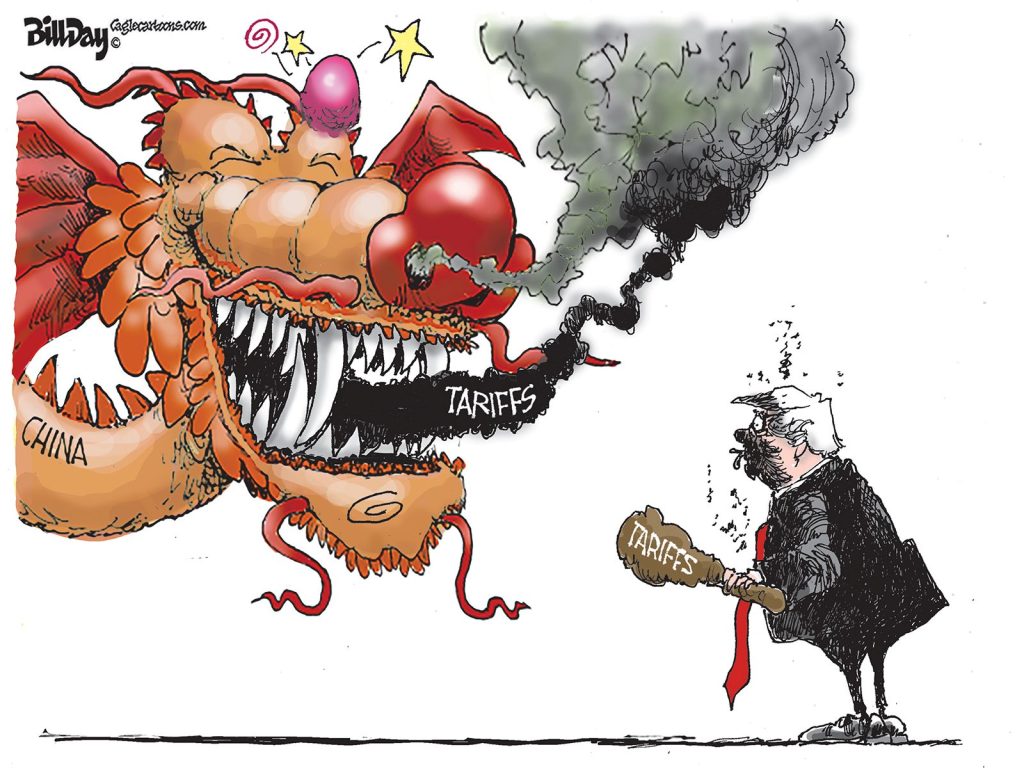TVA, aided and abetted by MLGW and Greater Memphis Chamber, has unleased its latest PR offensive that seems aimed at raising fears rather than facts.
Apparently, MLGW and TVA are showing signs of anxiety over the very real possibility that MLGW could save hundreds of millions of dollars annually if it buys electricity from a power supplier other than TVA – an enormous savings that multiple reports have predicted, and which the TVA-MLGW tag team repeatedly has tried to refute.
That seems to be the only reason that a MLGW executive and the Memphis Chamber this week circulated multiple stories about how TVA has added thousands of jobs and billions of dollars to Shelby County’s economy in recent years, and how the nation’s power grid is in trouble (not TVA’s power grid, of course).
There’s even a story claiming that Midcontinent Independent System Operator (MISO) is suffering from rising prices and the reliability of its delivery system is decreasing. MISO is the transmission grid MLGW would connect with if the utility left TVA. (MISO serves 15 states and parts of Canada and is three times the size of TVA.)
TVA’s Changing Argument
This self-serving media blitz comes just days before MLGW is expected to announce which of the bids from 20+ companies will be selected for consideration as MLGW weighs whether to end its 80-year relationship as TVA’s largest customer.
TVA has close and intertwined ties within MLGW and the Chamber, yet the federal power behemoth remains nervous, and for good reason. MLGW is TVA’s largest distributor of power and pays TVA about $1 billion annually for electricity, which equals about 11 percent of TVA’s income.
But this about more than Memphis. Other cities and power distributors throughout the TVA footprint seriously are thinking about leaving TVA are closely watching to see what happens here.
Since the time four years ago when the issue of where Memphis should get its electricity arose, TVA, with the subtle – and sometimes, not so subtle – assistance of MLGW, has made its nail-biting public. TVA first said it would not be part of the bidding process if MLGW sought to leave TVA. It likely expected a wave of support for their position, but when it didn’t come, they responded anyway. TVA already has announced it is one of the 20+ bidders.
Even before the bidding process began, TVA said that if MLGW left TVA the annual projected savings for the utility was a false promise. Now that the bids for power have been submitted, TVA has stopped talking about the price of power and has turned the focus of its argument to reliability.
Industry Gets Lower Electric Rates
To question MISO’s reliability amounts to little more than a scare tactic and a way to deflect that Memphis’ home-owned utility stands to save between $150 million and $400 million a year if it buys its power on the open market and not from a federal monopoly.
TVA wants Memphis to believe that its power prices are the lowest available for reliable power. Yet, the little-known secret is that TVA sells the same power at a much lower price to industrial customers – perhaps 20 percent to 30 percent lower than what is paid by residential and smaller business customers.
Depending on whom you ask, the justification for this price disparity enjoys a myriad of explanations. Such as, the industrial customer uses more electricity and only has one connection to TVA, so it costs less to serve them. Or industrial customers get a discount because of high volume. Such reasoning makes little sense since Memphis buys 11 percent of all the power TVA sells and MLGW is connected to the TVA grid at only three points, so it really doesn’t cost TVA much to serve MLGW either.
A more reasonable explanation for the difference in power price is that industrial customers negotiate a lower price because, they argue, they can move their production plants elsewhere. So, they shop for the best price.
What TVA fails to admit is that is what Memphis is threatening to do. We can’t move Memphis, but we can move our power supply connections to a reliable grid just across the river. Memphis is a larger power-user than most, if not all, of TVA’s industrial customers who get sweetheart prices. Yet TVA has always refused to lower the price that MLGW’s ratepayers pay.
Another Questionable Economic Impact Study
TVA talks incessantly about what it does for Memphis.
The Chamber’s latest pitch for TVA is a perfect example. Yet all of TVA’s contributions and handouts in Memphis are petty cash when compared to the size of the projected savings Memphis ratepayers could realize if MLGW turned to the open market for its power supply.
In an apparent attempt to bolster TVA’s case, the Greater Memphis Chamber released a cheerleading report – it just happened to be commissioned by TVA – which met with an incredulous response when it claimed that TVA over a five-year period was responsible for more than 9,000+ jobs and $1.05 billion economic impact.
If Memphis has become known for anything, it is the exaggerated and hyperbolic economic impact studies by our economic development agencies. After all, the Chamber also zealously defends the $800 million in taxes that are given away every 10 years and the flawed reports that are released to support every PILOT.
The Chamber is like our community’s PILOT program. Its study would have more credibility if it had been done independently by a third-party economist. After all, it’s easy to imagine that the operating money that TVA and MLGW give to the Chamber each year was influential in the results of this report.
The Biggest Decision of the Century
It is clear that MLGW should get lower power prices from TVA because it already gives such largesse to industrial customers. It is also clear that the reliability issue is not the problem TVA would have us believe. Just ask some of MISO’s customers, like Indianapolis or Minneapolis or Little Rock, how often their power goes down. MISO and TVA operate under the same regulations imposed by the Federal Regulatory Energy Committee (FERC).
The only thing not clear is whether the City of Memphis, including the administration and City Council, will require that the evaluation process of these 20+ bids for our energy supply will be conducted in an open and transparent process so that everyone in Memphis, especially the ratepayers, can see what the real potential savings are.
Where MLGW gets our power supply is arguably the biggest decision that will have the greatest impact on this city in more than a century. MLGW and TVA can spin the issue any way they want, but this is no time for deals worked out behind closed doors and away from the sanitizing impact that comes from public meetings and discussions.
***
Join us at the Smart City Memphis Facebook page for additional articles, reports, and commentaries relevant to Memphis and Shelby County.





TVA can and will pick off more of the large industrial customers in MLGW’s territory. Who pays to make up the difference?